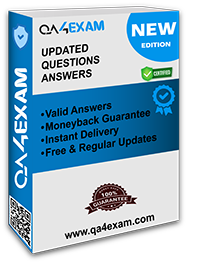Salesforce Education-Cloud-Consultant Exam Actual Questions
The questions for Education-Cloud-Consultant were last updated on Oct 4, 2024.
- Viewing page 1 out of 44 pages.
- Viewing questions 1-5 out of 219 questions
A Recruitment department wants to centralize its recruitment efforts and application operations, and engage with students through social channels like WhatsApp.
Which solution set should the consultant recommend?
Centralizing Recruitment Efforts: Service Cloud provides a robust platform for managing and automating recruitment processes, including case management, communication tracking, and applicant management.
Digital Engagement: The Digital Engagement add-on for Service Cloud enables institutions to engage with students through various social channels, including WhatsApp, SMS, and more.
Solution Set Benefits:
Service Cloud: Offers tools for managing and automating recruitment processes, tracking applicant progress, and maintaining communication logs.
Digital Engagement: Facilitates multi-channel communication, allowing recruitment teams to interact with students on their preferred platforms like WhatsApp.
Implementation Steps:
Enable Service Cloud: Ensure Service Cloud is enabled in the org.
Set Up Digital Engagement:
Navigate to Setup and enable Digital Engagement.
Configure channels such as WhatsApp, SMS, etc., by following the setup wizards and integrating them with the existing Service Cloud setup.
Customize to Fit Recruitment Needs: Tailor the solution to meet specific recruitment workflows and requirements.
Training and Adoption: Provide training to the recruitment team on how to use the new tools and monitor adoption to ensure they leverage the system effectively.
The director of graduate recruitment is interested in Education Cloud. Recruitment staff need to access Opportunity and Campaign Member information about students. The IT director is concerned about costs and suggests using other license types for full-time recruitment users.
What should the consultant discuss with the client?
Understanding Licensing Requirements:
Full-time recruitment staff need access to Opportunity and Campaign Member objects, which are part of core Salesforce functionalities.
Salesforce Platform licenses have limitations on access to certain standard objects such as Opportunities and Campaigns, which are essential for the recruitment use case.
Business Use Case for Full Salesforce License:
Opportunity Management: Recruitment staff need to manage opportunities related to student admissions and engagement.
Campaign Management: Access to Campaign Members allows recruitment staff to track and manage student participation in various recruitment campaigns.
Advanced CRM Functionalities: Full Salesforce licenses provide access to all Salesforce CRM capabilities, which are necessary for comprehensive recruitment operations.
Cost Considerations:
While full Salesforce licenses are more expensive than platform licenses, they provide the necessary functionality without limitations.
Discuss potential volume discounts or bundling options with Salesforce to mitigate costs.
Implementation Steps:
License Assignment: Ensure that full Salesforce licenses are assigned to recruitment staff.
Training: Provide training to recruitment staff on how to effectively use Opportunities and Campaign Members.
Customization: Customize Salesforce to meet specific recruitment needs, leveraging Opportunities and Campaign functionalities.
An institution's office of Career service wants to solution that allows student to schedule appointments with nay available counselor directly from a portal.
On which object is the availability configured?
Configuring Availability for Appointments:
The Benefit Schedule object is used in Education Cloud to manage availability for scheduling appointments.
This allows the institution to set up availability slots that students can book directly through a portal.
Setting Up Benefit Schedule:
Navigate to Setup: Go to the Salesforce Setup menu.
Create Benefit Schedules: Define the availability slots for counselors by creating Benefit Schedules.
Assign Benefit Schedules: Link these schedules to the respective counselors.
Integration with Portals:
Ensure that the portal used by students is configured to display available slots from the Benefit Schedule object.
Students can then book appointments directly based on the availability set in the Benefit Schedules.
Training and Adoption:
Provide training to counselors on managing their availability through Benefit Schedules.
Ensure students are aware of how to book appointments through the portal.
The Advancement office is evaluating the capabilities of Education Cloud. The office needs to ingest, harmonize, and analyze batch data from its Education Cloud org and other systems.
Which solution should the consultant recommend?
Data Integration and Analysis:
Data Cloud (formerly known as Salesforce Customer 360 Data Manager) is designed for ingesting, harmonizing, and analyzing data from multiple sources.
It provides a centralized platform to manage batch data from Education Cloud and other systems.
Capabilities of Data Cloud:
Data Ingestion: Ability to import data from various sources including Education Cloud, ERP systems, and other databases.
Data Harmonization: Standardizes and merges data to create a unified view.
Data Analysis: Offers tools to analyze and visualize the harmonized data for insights.
Implementation Steps:
Enable Data Cloud: Work with Salesforce support to enable Data Cloud for your org.
Configure Data Sources: Set up connections to the various data sources.
Define Data Models: Create data models to harmonize data from different systems.
Setup Data Integration: Configure data integration processes to regularly ingest and update data.
Analyze Data: Use Data Cloud's analytics tools to generate insights from the unified data.
A university Advancement office uses the Education data Architecture (EDA).
Which EDA functionality should the Advancement office use to track historical data for targeted outreach and donation opportunities?
Tracking Historical Data with EDA:
The Affiliation object in EDA is used to track historical data related to relationships between individuals and organizations (such as alumni and the university).
Using Affiliations for Targeted Outreach:
Create Affiliations: Set up affiliations for alumni to capture historical data such as past donations, engagement activities, and more.
Targeted Outreach: Use the data from affiliations to segment alumni for targeted outreach and donation opportunities.
Implementation Steps:
Configure Affiliations: Ensure that the Affiliation object is configured correctly to capture the necessary historical data.
Data Entry: Enter historical data into the Affiliation records.
Reporting and Analysis: Create reports and dashboards to analyze affiliation data and identify potential outreach opportunities.
Salesforce EDA Documentation: Affiliations

Unlock All Questions for Salesforce Education-Cloud-Consultant Exam
Full Exam Access, Actual Exam Questions, Validated Answers, Anytime Anywhere, No Download Limits, No Practice Limits
Get All 219 Questions & Answers